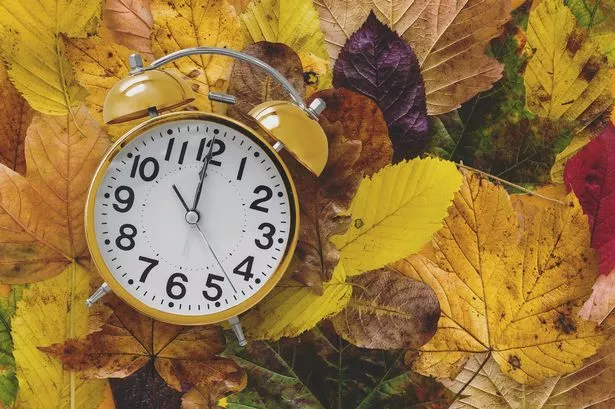This weekend the clocks will go back by one hour and bring much darker evenings Clocks(Image: Getty Images)
Clocks(Image: Getty Images)
It is almost the end of October and soon it will be time to turn the clocks back.
This weekend the clocks will go back by one hour and bring much darker evenings. Once December rolls around, sunset will happen at around 4pm.
But when do the clocks go back and why do we do it every year? Does it happen worldwide or just in Ireland? Here’s everything you need to know about the clocks going back:
When does it happen?
The clocks will go back one hour at 2am on Sunday, October 26.
Does this happen just in Ireland?
Clocks go back across all EU member states on the last Sunday in October and forward on the last Sunday in March. In North America, Daylight Savings Times (DST) starts on the second Sunday in March while clocks go back on the first Sunday in November.
In Australia New South Wales, Victoria, South Australia, Tasmania and the Australian Capital Territory turn their clocks forward one hour at 2am on the first Sunday of October. The rest of Australia does not observe daylight saving.
Why do we do it?
By the clocks going back an hour during autumn, this provides people with more sunlight in the morning. When the clocks go forward in the spring, people can look forward to lighter evenings.
What do you need to do?
Thanks to the advancements of modern technology, most Irish households no longer need to take much action when the clocks change. The the majority of smartphones and other digital items will make the time switch automatically, but on traditional clocks and watches the time will have to be changed manually.
I thought the EU were ending the practice?
In 2019, the EU Parliament voted to stop DST from 2021 onwards. This was based on an EU-wide survey that showed 70% of respondents wanted the practice to stop. The last clock change was due to take place in Spring 2021, but the proposal was put on the back burner while the world coped with the Covid-19 pandemic.
EU institutions have not made progress since on implementing the decision, and the European Commission has said that it does not plan to submit a new proposal on the matter to the Parliament. This means that no changes are expected to summer and winter time in the coming years.
Join our Dublin Live breaking news service on WhatsApp. Click this link to receive your daily dose of Dublin Live content.
We also treat our community members to special offers, promotions, and adverts from us and our partners. If you don’t like our community, you can check out any time you like. If you’re curious, you can read our Privacy Notice.
For all the latest news from Dublin and surrounding areas visit our homepage.
